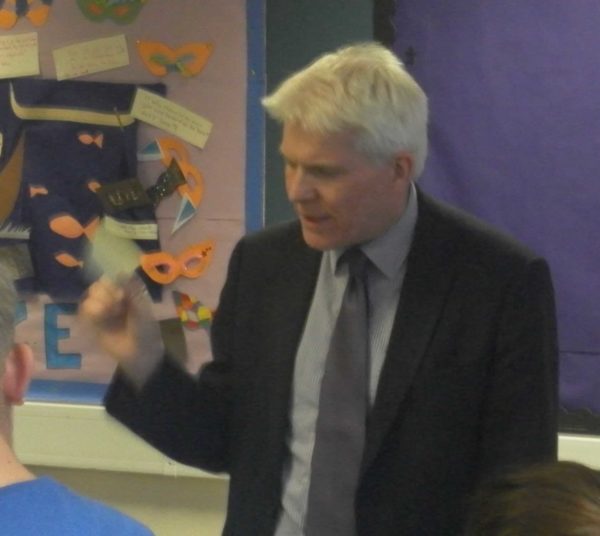Jim McDougall, deputy rector of Hutchesons’ Grammar, an independent school in Glasgow Scotland, shares five ways educators can use technology and innovation.
 I am a deputy rector in our senior school, with responsibility for co-curricular activities and international education program. I also teach Geography and mentor a group of final year students, who are preparing for university.
I am a deputy rector in our senior school, with responsibility for co-curricular activities and international education program. I also teach Geography and mentor a group of final year students, who are preparing for university.
Many colleagues use blogs as a way of supporting learning and teaching. Platforms like Blogger or Edublog are ever more sophisticated, meaning that you can upload images, clips and text easily. The key thing to ensure is that posts are up to date and easily accessible. It’s a good idea to have a house style, to maintain the school’s identity and reputation.
We use Twitter and Facebook a lot. As an independent school, social media is a key part of our marketing strategy, and helps us maintain links with alumni. Tweets with hashtags are a great way of drawing parents into the conversation, or reminding families about important diary dates. Both Facebook and Twitter allow quick response and an active dialogue between school and community 24-7. Pupils create Facebook groups for specific events, while Twitter is a great way of reassuring parents that all is well on the school trip to Outer Mongolia…
Most schools are ambiguous about mobile phones; they can be a massive disruption, and they can be abused. But, they are much more than just phones, so their potential should not be overlooked. In Geography we use the compass to learn about map reading. The calculating firepower of your typical phone allows complex number crunching, while capturing images on a field trip makes for an instant photo record of work. Pupils are encouraged to photograph diagrams on the board, or I may take a snap of an assignment, upload it and share it with the class through the digital projector.
We are developing links with partner schools in other European countries. While it is good to meet face to face, logistics mean that we have to set up virtual meetings to communicate. With Skype and Facetime, I can engage with my opposite number in the Netherlands or Germany, and quickly organise the next stage of our project.
The school has a scheme for buying i-pads over a fixed term. It’s now my virtual office, ideal for someone who has meetings all over the school and off-site. I can access my files, folders and e-mail anywhere with Wi-Fi and rarely have to worry about ring binders and notebooks. I download educational and geographical apps, too. We are updating our website to make sure is cell phone and tablet-friendly. The future is not only digital, it is portable.
Have great tech essentials you’d like to share with readers? Send your contribution here.
Jim McDougall is the Deputy Rector of Hutchesons’ Grammar School, Glasgow, Scotland.
- Five key ed-tech tools for educators - January 16, 2014

